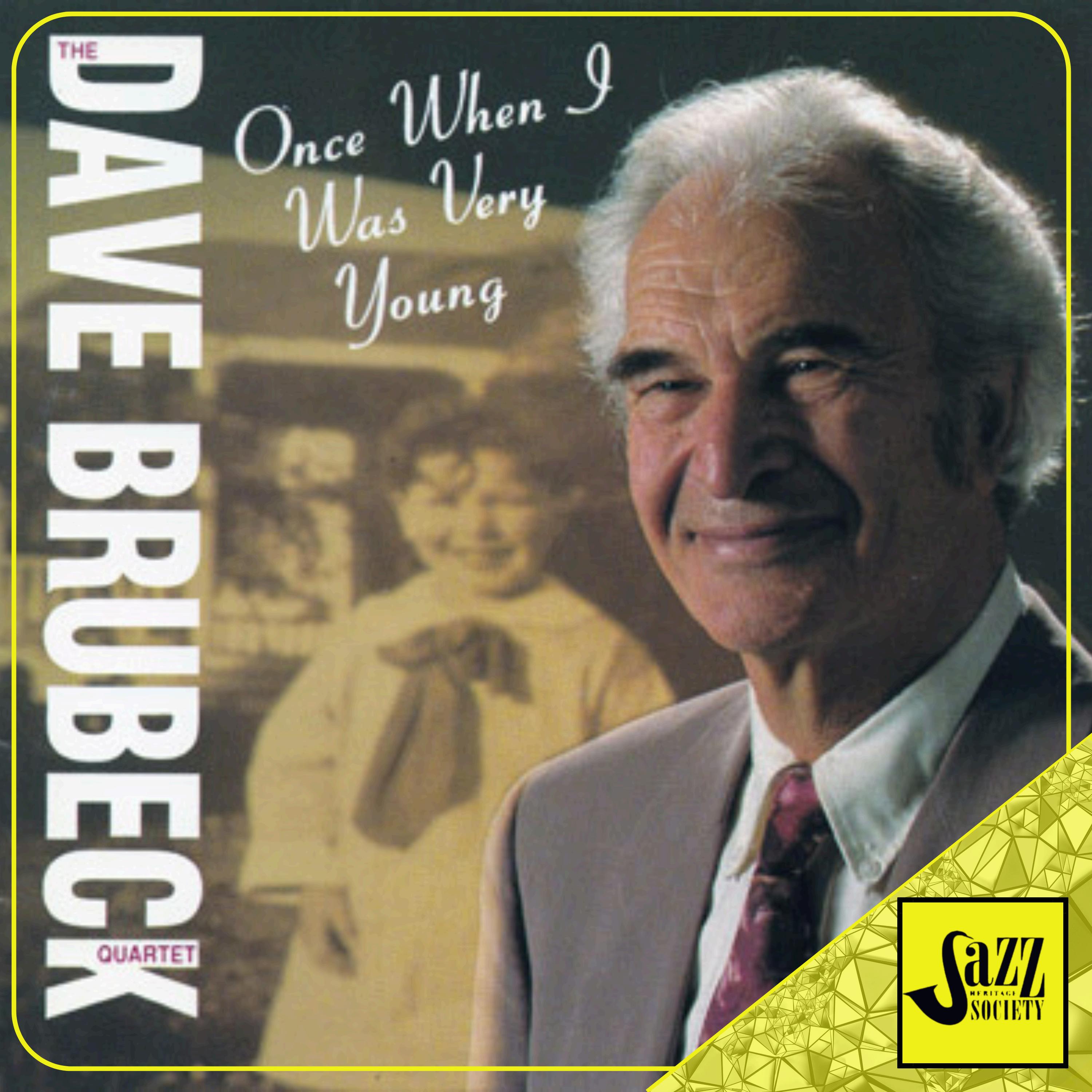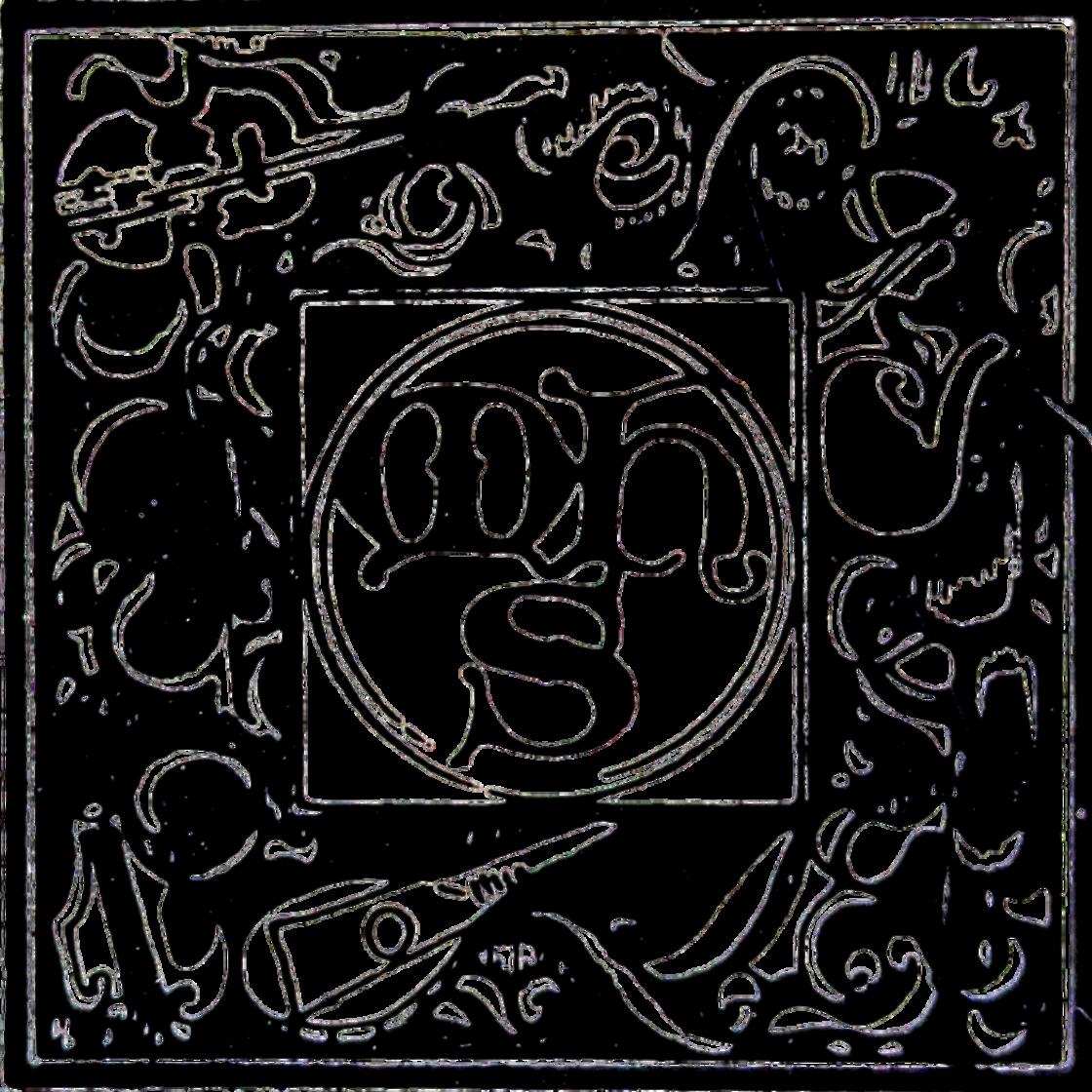
1 Once When I Was Very Young (Dave Brubeck) Derry Music Co. (BMI)
2 What Is This Thing Called Love (Cole Porter)
Warner Brothers Music Corp. (ASCAP)
3 Among My Souvenirs (Horatio Nicholls)
MCA Music Publishing (ASCAP)
4 Dancin' In Rhythm (Dave Brubeck) Derry Music Co. (BMI)
5 Yesterdays (Jerome Kern)
TB Harris (ASCAP)
6 In A Little Spanish Town (Samuel M. Lewis/Mabel Wayne/ Joseph Young)
EMI Feist Catalog/Warock Corp. (ASCAP)
7 Stardust (Hoagy Carmichael) Mills Music (ASCAP)
8 Shine On Harvest Moon (Nora Bayes/Jack Norworth) Arr. Dave Brubeck
Derry Music Co. (BMI)
9 Gone With The Wind (Herbert Magidson/ Allie Wrubel) Bourne Co. (ASCAP)
10 (This Is My First Affair So)
Please Be Kind (Sammy Cahn)
Warner Brothers Music (ASCAP)
11 Once When I Was Very Young
Music by Dave Brubeck
Lyrics by Michael Brubeck and John
Jenney Derry Music Co. {BMI)
Performed by The Gregg Smith Singers
Gregg Smith, Conductor
The Dave Brubeck Quartet
Dave Brubeck, piano
Bill Smith, clarinet
Jack Six, bass
Randy Jones, drums
1 Once When I Was Very Young
One Christmas my son Michael gave me a collection of his poems, edited by his friend, John Jenney, and illustrated by John's wife, Julie. As I read one of the poems, a melody came to me that suggested the feeling of choral music I had heard as a youngster. It seemed to fit the reflective mood of Once When I Was Very Young. The first time you hear the title song it is a piano and clarinet duo. On the closing track, you will hear the Gregg Smith Singers and the words:
Once when I was very young, with a twinkling in my eye, I looked at life with a curious view, as the days rolled slowly by. I listened with the ear of a child to the sounds of birds in flight, And shivered 'neath my covers when the dark snuffed out the light. But in the lazy days of summer, when the daylight lingered on, We played our games of hide-and-seek and daydreamed on the lawn.
The summer nights were spent with friends, when we tried with all our might To fight away the webs of sleep and wait for dawn's first light. These golden days are long past now. I've grown into a man.
But the memories of childhood I still hold in my hand. I've given up the things of youth, like toys and dolls and trains And traded them for others, like work and aches and pains. But in my mind I wonder if I could go back still
And live those days of misspent youth on summer's peaceful hills.
Once when I was so very young with a twinkling in my eye, I looked at life with a curious view as the days rolled slowly by. Choral music published by Hinshaw Music, P.O. Box 470, Chapel Hill, NC 27514
2 What Is This Thing Called Love
The reminiscent mood continues into the next track, in which Bill and I seem to muse about the mysteries of "this thing" called love. It certainly was a mystery to us in our youth, and it seems ever more perplexing as we grow older. Perhaps that's why What Is This Thing Called Love remains a perennial question and favorite song.
3 Among My Souvenirs
The lyric to the 1927 tune Among My Souvenirs tells it all:
There's nothing left for me
Of days that used to be, I live in memory among my souvenirs. Some letters tied with blue, A photograph or two, I see a rose from you among my souvenirs. A few more tokens rest Within my treasure chest. And tho' they do their best
To give me consolation, I count them all apart.
And as the teardrops start, I find a broken heart among my souvenirs. "Among My Souvenirs" by Edgar Leslie/Horatio Nicholls C 1927 (Renewed) Chappell & Co. (AS(AP) U.S.A. only & Lew Po/lac Music (ASCAP) All rights reserved. Used by permission.
4 Dancin' In Rhythm
Rummaging through my own musical souvenirs, I found in a discarded writing desk a forgotten score for a ballet I had started to write in 1968. Although composed for another generation, we found that young people responded enthusiastically when the Quartet, propelled by Randy's drumming, started playing it at festivals and concerts. Dancin' In Rhythm seems to have a contemporary message. (Another theme from that same rediscovered ballet was Quiet As The Moon, the title tune of our last album. Sometimes it's worthwhile to go back through odd collections of unfinished ideas.)
5 Yesterdays
Long ago I told my mother, who was a classical pianist, that I wanted to play jazz. She objected to the idea rather strenuously. But after she heard Art Tatum's recording of Humoresque, she said, "Now, I understand;' Like all other jazz pianists who followed Tatum, his influence is present in everything we do. There are other influences, too, that one acquires almost by osmosis. I am thinking of the hours I spent listening to my mother play Bach inventions and Chopin. Mix it all up with Teddy Wilson and some stride, and the lesson of my college literature teacher, Prof. Irving Goleman, seems to be amply demonstrated, “We are the sum of our past.” And so is Yesterdays.
6 In A Little Spanish Town
The original name of my birthplace in California was "Todos Santos:' When I was 11, I moved with my family to the Arroyo Seco Rancho, a cattle ranch that was originally a Spanish land grant. Hearing again In A Little Spanish Town, very popular when I was growing up, evoked in me a nostalgic feeling for what I imagined my childhood home must have been like when the Spanish families first settled there. Jack Six, our fantastic bass player, tells me it was his father's favorite song, even if he didn't come from the West.
7 Stardust
Stardust holds many associations for me. I wonder how many times and under how many different circumstances this tune has been played by Bill, and me, and other jazz musicians in the world.
One of my most remarkable memories of Stardust goes back to World War II in Germany. There was a room built into the wall of a Nazi labor camp, which served as a band room for my Wolfpack Band. One day when I was practicing piano, an Italian prisoner of war sneaked through the open window, supposedly sealed to separate POWs from the American soldiers. He asked me if I would please play for him "The Powder of the Stars by Ho-aw-gee Shar-masheel:' Of course, I did. When the other POWs discovered the accessibility of the verboten window, there was considerable traffic from both directions. I recall some Hungarian gypsies in that POW camp, whose music I still remember with excitement.
At the recording session, Randy and Jack had gone out of the studio to catch a breath of fresh air. During the break I started to play, wandering from one tune to another. I called for Bill to come join me. The tape was rolling. When Bill made his entrance on Stardust, I felt I was back at the Black Hawk in San Francisco. It was after hours. The patrons had gone home, and it was just Bill and me and the janitor.
Upon hearing this track again, I think I detect a hint of Erik Satie. Satie was known as "the father of the French Six:” His music would naturally have some influence on both Bill and me because our composition teacher was Darius Milhaud, probably the most famous of that group of composers known as "Les Six:”
8 Shine On Harvest Moon
I imagine my parents must have danced to Harvest Moon. I can remember my mother singing it. One summer when the Quartet was playing at the Robert Mondavi Winery, I looked out from the stage and saw a huge harvest moon, low in the sky. The grapes in the vineyard were ripening. There was a mysterious full moon shining down on a vineyard full of happy jazz fans on a perfect California night in the Napa Valley. The only appropriate melody for that moment was Shine On Harvest Moon. I started to play it. One by one the group joined in. Members of the audience began to sing, link arms and sway. It became the surprise hit of the evening. We have performed the tune in concerts since that night, and it seems that jazz audiences everywhere have a place in their hearts for this old-fashioned American standard.
9 Gone With The Wind
Gone With The Wind is a classic -- both the tune and the film, the most talked about movie of my youth. Like Stardust, it is just one of those songs that most musicians know. At this point in the recording session we were conjuring up tunes that each of us remembered fondly.
10 (This Is My First Affair So)
Please Be Kind
I associate (This Is My First Affair So) Please Be Kind with my high school years, when listening to the dance bands of the day was my favorite teenage pastime. I remember playing this song with the Bill Amick Band at San Andreas in the Mother Lode hills of California. I was raised in this Mark Twain "Jumping Frog" part of California. The dances in summer were mostly outdoors with a few bare light bulbs dangling over rough wooden planking for a dance floor. I don't think I've played or thought about this tune since then, but as I said, on this recording date we were all going back in time. I quickly wrote out what I thought would be appropriate chord changes. But there was no need. Bill and Jack and Randy seemed to have had it stored away in their memory ready to bring out for this occasion.
It is remarkable how many of these standards were recorded in one take with no rehearsal. They just seem to be part of our subconscious being. I guess the music you hear "once when you were very young" stays with you forever.
- Dave Brubeck
Russian Hill
Recorded May 6-7, 1991
Recording, San Francisco, California
Engineer: Gary Clayton
Assistant: Michael Ahearn
Mixed at Russian Hill Recording
Engineer: Gary Clayton
Assistant: Chris Haynes
Once When I Was Very
Young with the Gregg Smith Singers was recorded at the Church of the Holy Trinity, New York, New York
Engineer: David Hancock
Produced by Russell Gloyd

